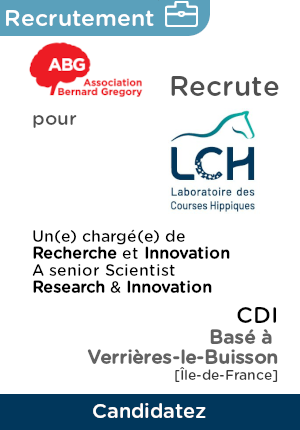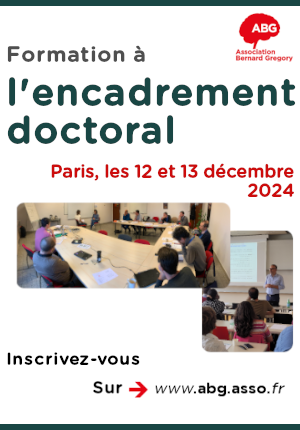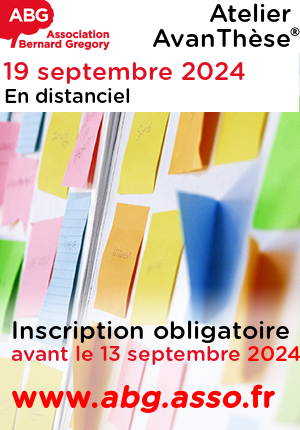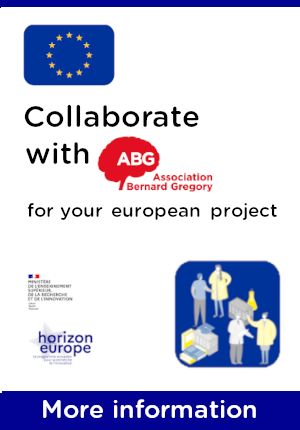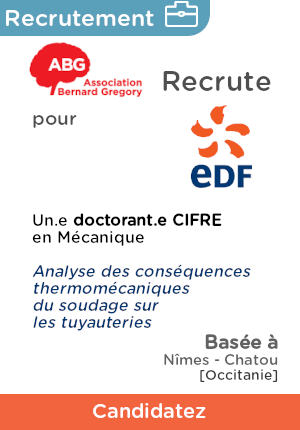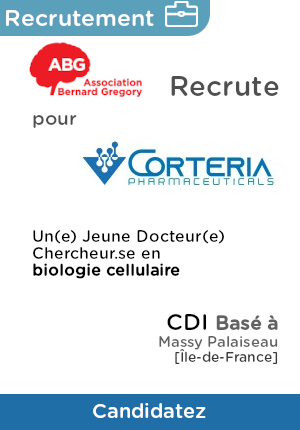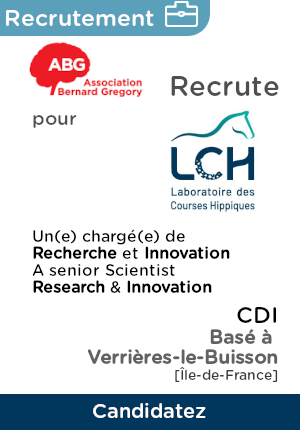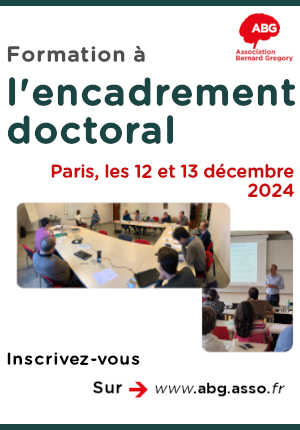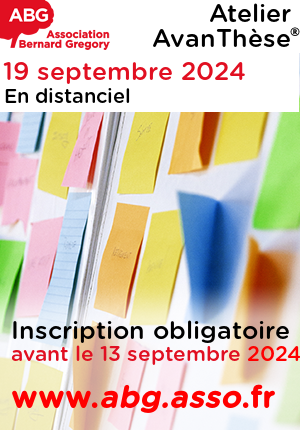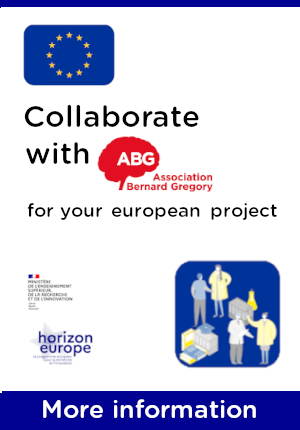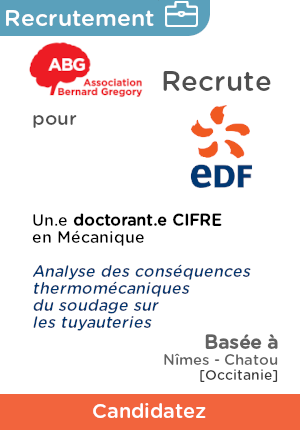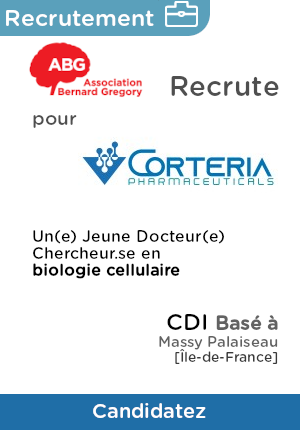Post-doctoral position in influenza virology/microfluidics Institut Pasteur, Paris, France
| ABG-124886 | Emploi | Niveau d'expérience indifférent |
| 04/07/2024 | CDD 18 Mois | > 35 et < 45 K€ brut annuel |
- Santé, médecine humaine, vétérinaire
Employeur
Institut Pasteur: Dr. N. Naffakh
The « RNA Biology and Influenza Viruses » (RBIV) team is headed by Dr N. Naffakh, in the Virology Department of Institut Pasteur, whose mission is to prevent and treat diseases, mainly those of infectious origin. The RBIV unit studies the mechanisms of transcription/replication of the influenza viral genome as well as the complex and intimately linked packaging and reassortment mechanisms of the segmented genome of influenza viruses. The RBIV unit has access to all necessary infrastructures for successful realisation of the project. Institut Pasteur is a highly multidisciplinary institution located in the heart of Paris.
UMR IHAP INRAE-ENVT: Dr Maxime Fusade-Boyer and Prof. Romain Volmer
The research team VIRéMIE of UMR IHAP is based at the Ecole Nationale Vétérinaire de Toulouse (ENVT). This research team has expertise in avian influenza viruses, particularly in the study and understanding of their evolutionary mechanisms, which can lead to the emergence of new variants with potential consequences for animal and human health. The UMR IHAP's location on the site of the ENVT enables access to a large number of samples from poultry farms, and thus to carry out research projects as close as possible to the realities of the field in state-of-the-art BSL2 and BSL3 facilities.
Poste et missions
The recruited post-doctoral scientist will be part of a collaborative project funded by the Institut Carnot/France Futur Elevage and the Institut Carnot/Pasteur MS that brings together the groups of Maxime Fusade-Boyer and Romain Volmer (INRAE - Ecole Nationale Vétérinaire de Toulouse (IHAP), project coordinator) and Nadia Naffakh (Institut Pasteur). The candidate will also work in collaboration with the team of Andrew Griffiths at ESPCI (Paris), expert in biology, chemistry and physics to perform droplet microfluidics.
Mobilité géographique :
Télétravail :
Prise de fonction :
Profil
We wish to recruit a motivated post-doctoral researcher with experience in virology. Prior experience in microfluidics would be advantageous. Flexibility, autonomy and the ability to work in a collaborative research consortium are essential qualities.
NB: This position is subject to compliance with good laboratory practices in a BSL1, BSL2 and BSL2+ environment.
Objectifs
A post-doctoral position is available in the research team of Dr Nadia Naffakh in the Department of Virology at the Institut Pasteur.
Research project: Avian Influenza reassortment surveillance and anticipation
Influenza A viruses are human and animal respiratory pathogens that represent a worldwide major public health threat: in addition to their yearly recurrence as “seasonal influenza”, the segmented nature of the influenza virus genome can lead to reassortment between highly divergent animal and human influenza viruses and the emergence of novel and potentially deadly pandemic viruses. In birds, and all the more so in the current H5Nx panzootic context, the co-circulation of various AIVs can give rise to new genotypes with unknown phenotypes due to reassortments. In 2016, a new highly pathogenic H5N8 AIV (HPAIV) emerged through reassortment. The emergence of this new genotype, which was the starting point for the current panzootic situation, illustrates the importance of surveillance and understanding of the reassortment process.
The overall goal of the project is to provide comprehensive study of the outcome of co-infection events between avian influenza viruses using the µFlu pipeline, an innovative droplet-based microfluidics approach recently developed by the team at Institut Pasteur, that allows to systematically analyze, in a quantitative manner, reassortment between influenza viruses on an unprecedented scale (Chen et al. 2022).
The project aims at i) using the µFlu pipeline to quantitatively assess, in cultured cells, the potential for reassortment between a genetically engineered H5N8 viruses derived from the H5N8 HPAIV and a H6N1 LPAIV virus, mimicking co-circulation in a duck farm in France in 2021; ii) upgrading the initial experimental pipelines for field surveillance; iii) investigating the feasibility of applying the µFlu pipeline to the identification of reassortant viruses in environmental-like samples.
Vous avez déjà un compte ?
Nouvel utilisateur ?
Vous souhaitez recevoir nos infolettres ?
Découvrez nos adhérents
 Institut Sup'biotech de Paris
Institut Sup'biotech de Paris  Laboratoire National de Métrologie et d'Essais - LNE
Laboratoire National de Métrologie et d'Essais - LNE  CESI
CESI  MabDesign
MabDesign  ANRT
ANRT  CASDEN
CASDEN  MabDesign
MabDesign  Généthon
Généthon  Institut de Radioprotection et de Sureté Nucléaire - IRSN - Siège
Institut de Radioprotection et de Sureté Nucléaire - IRSN - Siège  Ifremer
Ifremer  PhDOOC
PhDOOC  ONERA - The French Aerospace Lab
ONERA - The French Aerospace Lab  TotalEnergies
TotalEnergies  Aérocentre, Pôle d'excellence régional
Aérocentre, Pôle d'excellence régional  Tecknowmetrix
Tecknowmetrix  Nokia Bell Labs France
Nokia Bell Labs France  Groupe AFNOR - Association française de normalisation
Groupe AFNOR - Association française de normalisation  ADEME
ADEME  SUEZ
SUEZ
-
EmploiCDDRef. ABG125071KTHStockholm - Suède
ERC-funded postdoc position on the detection of gas-phase organic radicals, KTH, Stockholm, Sweden
Chimie - Physique - Sciences de l’ingénieurNiveau d'expérience indifférent -
EmploiCDIRef. ABG124941Corteria PharmaceuticalsMassy-Palaiseau - Ile-de-France - France

Jeune Docteur, Chercheur en Biologie Cellulaire & Moléculaire (H/F)
BiologieNiveau d'expérience indifférent -
EmploiCDIRef. ABG123642Laboratoire des Courses Hippiques (GIE LCH)Verrières-le-Buisson - Ile-de-France - France
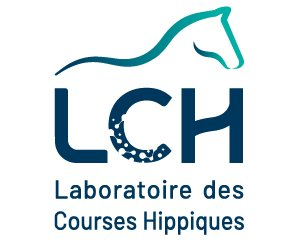
Chargé(e) de Recherche et Innovation (H/F) / Senior Scientist Research & Innovation (M/F)
Chimie - BiochimieConfirmé

